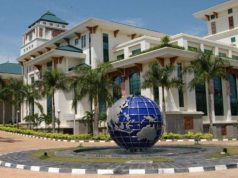JUNE 30- British Prime Minister David Cameron flew into Afghanistan on Saturday to try to reinvigorate stalled peace talks with the Taliban and reassure Afghans that foreign troops will not cut and run next year.
Cameron’s visit to British military bases in southern Afghanistan came four days after the Taliban attacked buildings near the presidential palace in Kabul and the Afghan headquarters of the U.S. Central Intelligence Agency (CIA), setting back already shaky attempts to end 12 years of war.
That attack came a week after U.S. and Taliban representatives had attempted to meet in the Qatari capital of Doha, a session that was cancelled amid objections from the Afghan government.
British officials said Cameron was keen to boost political stability ahead of a presidential election next year which Western diplomats hope will result in the first peaceful transition of power in Afghanistan since 1901.


“We want a political solution as well as making sure we have a security solution,” Cameron told reporters.
“What we have done in Afghanistan is we came here to stop it being used as a base for terrorist activities. That has been and is successful.
“What we (now) need to do is build up the Afghan armed forces and at the same time make sure that the politics of Afghanistan enable everyone in Afghanistan to play a role in the future of their country. We are making some progress there.”
The Taliban’s statement that they no longer wanted Afghanistan to pose a threat to other countries or to be a haven for terrorism was encouraging, he added.
Separately, a senior military source said Western troops would need to remain in the country as part of a “follow-on mission” up until 2020.
Cameron’s visit comes 11 days after a ceremony marking the start of the final phase of the handover of nationwide security responsibility to Afghan forces.
Dubbed “milestone 2013” by NATO, the event will lead to the departure of all NATO troops serving in Afghanistan at the end of next year.
NATO and its partners are racing against the clock to train Afghanistan’s 350,000-strong security forces before then, though questions remain over how well the Afghans will be able to tackle the insurgency in the face of high casualty numbers.
The source said Western troops would need to undertake a mission after 2014 that would last “three to five years”, while a senior diplomatic source conceded that some of the gains the West has notched up since 2001 were “reversible”.









